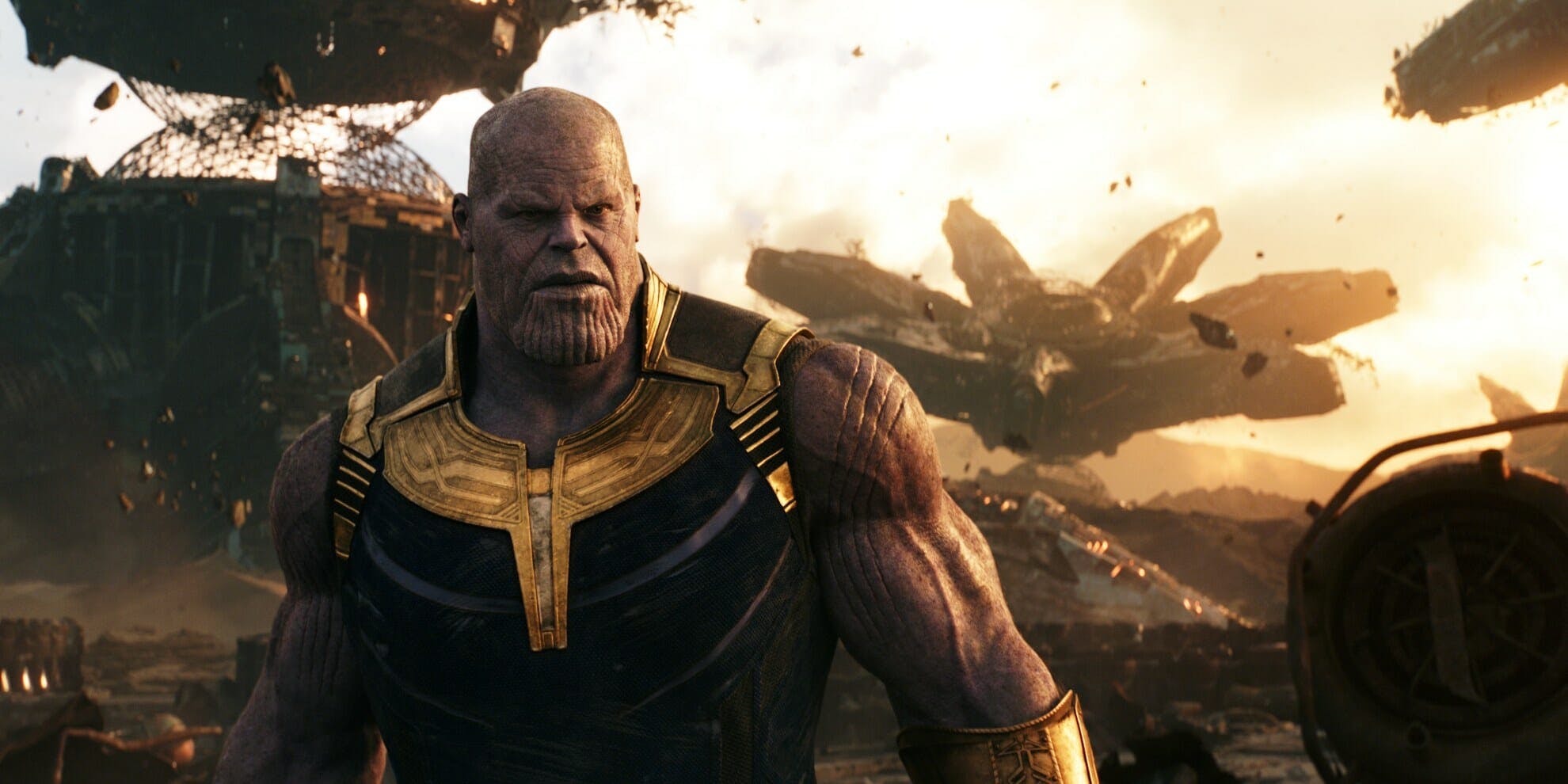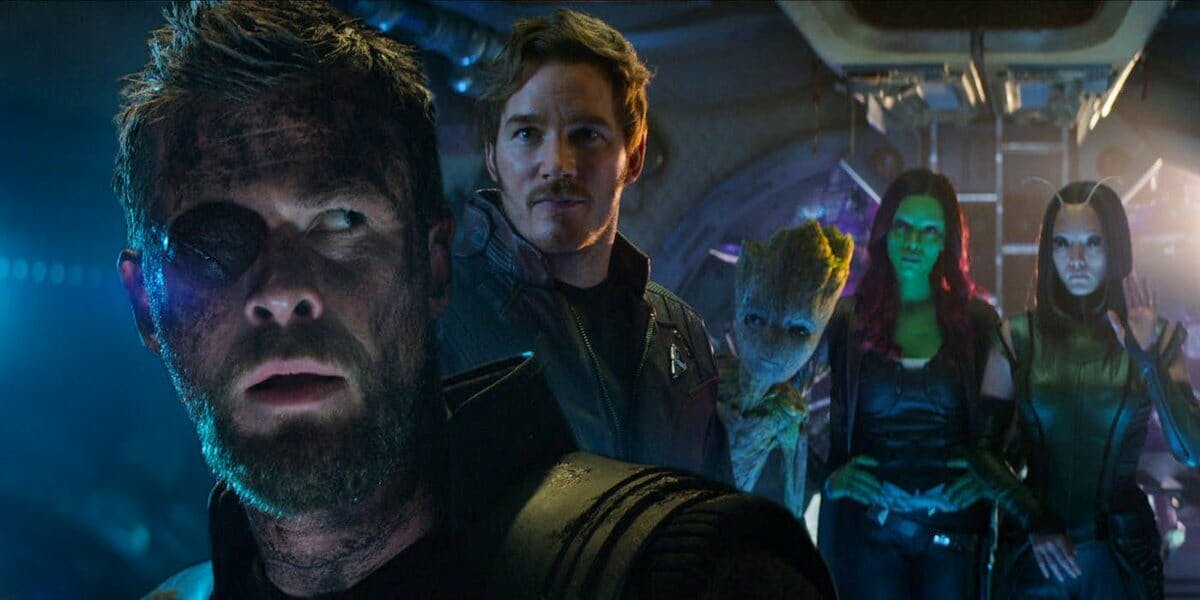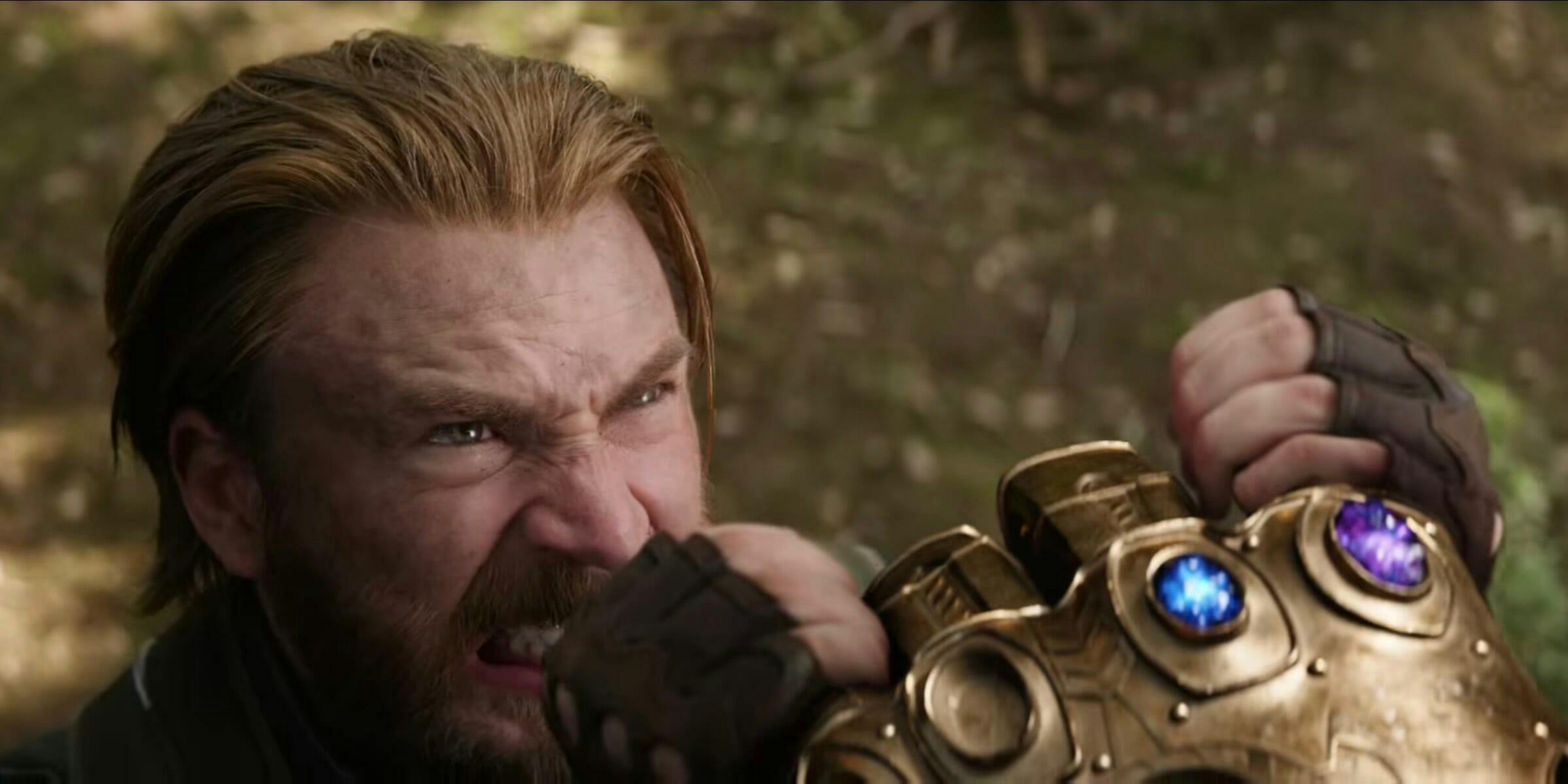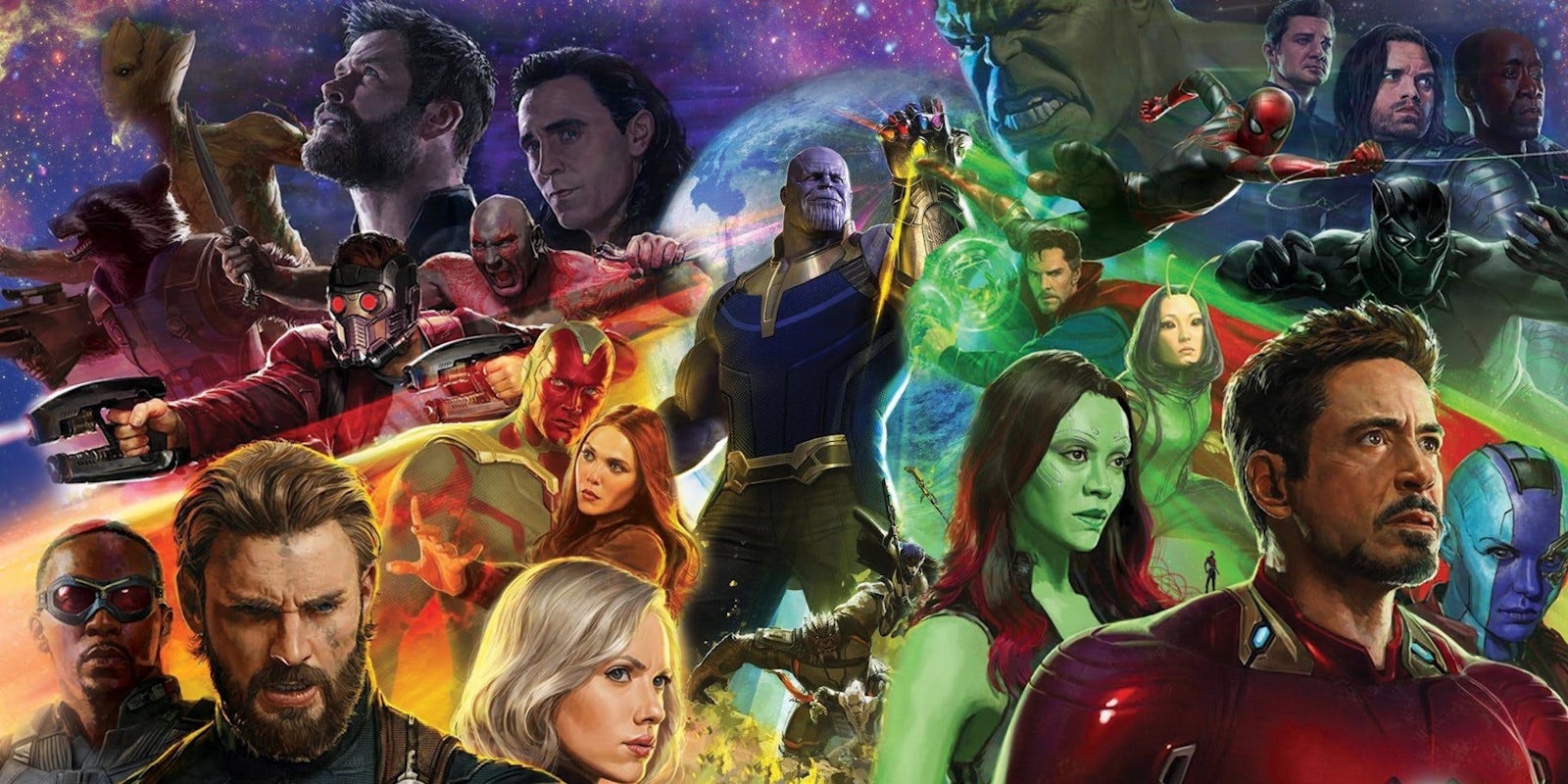This Avengers: Infinity War review is spoiler-free.
I went into Infinity War thirsty for blood. When every hero must survive for their next contractually obligated adventure, Marvel’s cataclysmic battles have stretched credulity. It’s time for some of our faves to die.
Naturally, I wouldn’t dream of spoiling the gory details. Suffice it to say that bloodthirstiness is an appropriate mindset for Infinity War, a story that hinges on one man’s unquenchable lust for death.
Unlike Black Panther or Spider-Man: Homecoming, this movie isn’t aimed at new audiences. With Thor and the Guardians of the Galaxy in space and the Avengers still licking their wounds after Captain America: Civil War, the main cast arrives with long-established backstories. This sets the stage for an epic struggle against Thanos (Josh Brolin), an alien tyrant who wants to kill precisely half of all sentient life. His motive? A dubious quest to curtail “overpopulation,” which he believes is the true enemy of prosperity.

Honestly, the writers shouldn’t have bothered with a motive at all. Thanos is more compelling in action than when he’s trying to explain himself. Infinity War should have leaned into his melodramatic source material, glorying in a maniacal passion for murder. As it stands, Brolin’s performance sells Thanos as a powerful physical presence whose emotions are just off enough to be discomfiting. He’s one of Marvel’s better villains but certainly not the best. In the drive to make Thanos make sense, Marvel overcomplicated a character who—like the Joker—should just be an inexplicable agent of chaos.
Compared to previous Marvel movies, I’m torn between two contradicting reactions to Infinity War. On the one hand, the plot’s key driving force is thin (“Thanos wants to steal some magical jewels”), and it offers little in the way of character development. You’ll struggle to find much political or thematic depth, and the Russo Brothers still aren’t very good at directing action scenes. In an action movie!
At the same time, Infinity War outshines Avengers: Age of Ultron and is more coherent than the disjointed Civil War. Where Ultron’s humor was often forced and poorly characterized, Infinity War’s jokes are the opposite. I was almost shocked by how funny it was, given that it’s also a 160-minute apocalyptic slugfest. Visually it’s in the realm of Guardians of the Galaxy, featuring sweeping vistas of alien space—including some polished updates of Thanos’s sci-fi roots in the comics. It forces you to consider the collective effort behind these movies, because while the Russos don’t have a knack for visual storytelling (unlike, say, Taika Waititi), Infinity War’s concept design and luminous CGI far outstrip what we saw in previous Avengers movies.

So: Infinity War is entertaining and by no means a disappointment, but it’s otherwise kind of empty. If you buy into the hype, the entire franchise led up to this moment. We spent a dozen movies waiting for Thanos to arrive, and when he does… we end up waiting some more. The first two hours revolve around collecting things: weapons, teammates, Infinity Stones. This leads into the expected string of battle sequences, which in turn leads into Avengers 4 in 2019. The whole thing is a waiting game. That’s no way to tell a story.
The ultimate crossover event
Fans will recognize this as a quintessential event comic story. An epic clash designed to attract a huge audience, offering unexpected team-ups and shocking twists. As crossovers go, it’s efficiently executed but suffers from some familiar pitfalls. Namely, the unavoidable interruption of ongoing elements like Asgard, Wakanda, and the Winter Soldier’s long-awaited recovery arc. There’s precious little time to linger on deeper emotions.
The two pivotal relationships both feel a little forced: Vision and Wanda, whose romance apparently got very serious between movies, and Thanos and Gamora, whose big father/daughter scene is clunky and clichéd. You’re more likely to care about relationships that got more screentime in earlier movies. Tony Stark is still an amusingly bad mentor to Peter Parker, and the Guardians follow the wisecracking tone of their own franchise. We know Tony so well that we only need a single line to understand where he’s at. “It’s happening,” he mutters, when he first hears of Thanos’s plan. Haunted by PTSD, Tony’s been preparing for this attack for years. As he steels himself to protect Earth once again, we see an increasingly jittery eccentricity in Robert Downey Jr.‘s portrayal of this aging hero.
Thor is the clear MVP, though. Chris Hemsworth‘s comedic talents continue to flourish, tempered by a sense of tragedy after Asgard’s demise. Sidelined in Age of Ultron, he comes to the foreground here with a Lord of the Rings-esque space quest. Meanwhile, other A-listers (most notably Steve Rogers) remain on the backburner. Doctor Strange is the weak link. Along with being the most unlikeable hero, Benedict Cumberbatch‘s American accent is appalling. At one point he has to deliver the word “douchebag,” and I physically recoiled. Sadly, Marvel wrote itself into a corner because Strange owns one of the Infinity Stones, meaning he has to have a central role.
Is the Infinity Gauntlet really worth it?
Now, we must confront the elephant in the room: The Infinity Gauntlet just isn’t that great. Heavily foreshadowed in earlier movies, the Gauntlet harnesses the power of six Infinity Stones. Once Thanos has them all, he can kill billions with the snap of a finger. As a longtime superhero fan, I’m willing to accept this rather silly macguffin at face value. However, this film isn’t quite weird enough to make the Infinity Gauntlet work in action.

While each gem represents a different power—time, space, reality, mind, soul, and power (yes, the power of power)—these mostly translate to the same thing onscreen: bright lights and the ability to fling heavy objects around. Even after Thanos gets the Reality Stone, he rarely uses it to alter reality. Instead, we’re treated to more traditional fistfights and pitched battles. The same goes for Scarlet Witch and Doctor Strange, our other two magic-users.
Screenwriters Chris Markus and Stephen McFeely penned the Narnia trilogy before Captain America: The Winter Soldier, and they’re adept at handling mythic fantasy with an appropriate lack of explanation. (Do we need to know why Thanos must confront a cloaked figure on a desolate alien ruin? No; it just feels right.) However, this doesn’t extend to the idea of using magic in a conceptually interesting way. The directors mostly envision the Gauntlet as a blunt force instrument, and the more we see it as physical weapon, the harder it is to suspend disbelief. It’s best not to ask how Steve Rogers survives a Gauntleted punch to the face, when Thanos is also capable of disintegrating a moon at will.
Starting with admittedly low expectations, Infinity War left me pleasantly surprised. All its problems were things that fans had already considered at length: the overlong runtime, the extensive cast list, the villain who can’t possibly measure up to Killmonger or Loki’s emotional impact. Its strengths are more unexpected. Infinity War is consistently funny. Its crossover team-ups are genuinely entertaining instead of feeling like awkward fanservice. And against considerable odds, it all holds together.
Where Ultron felt like an unnecessary Iron Man sequel and Civil War felt like two stories sewn together, Infinity War manages to be coherent and follow distinct characterization from previous spinoffs. Was this a self-inflicted challenge, brought on by Marvel’s increasingly unwieldy method of storytelling? Sure. But they cleared the hurdle. Infinity War was never going to be a heartfelt and meaningful venture like Black Panther, but it successfully translates the crossover event genre to the big screen.
Correction: A previous version of this story incorrectly identified Stephen McFeely.


